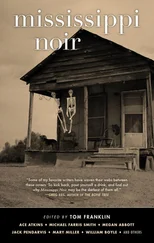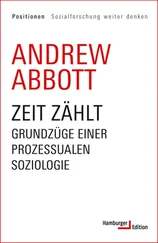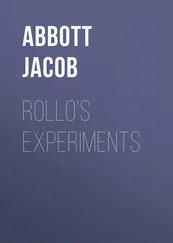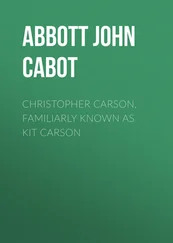12 Abbott Discovers an Idiom in His Yard
Abbott’s neighbor’s woodpile, against which Abbott pushes his mower this afternoon, is a real woodpile, not a metaphor. Abbott, deep in academic reverie, doesn’t even recognize the object, doesn’t name it woodpile . It’s been reduced to its geometry — it exists only in relation to his mower. As he bumps the mower against the edge of the pile, he is startled by an interstitial slithering in the stacked logs. He sees the scales, so vivid as to seem artificial. Numerous times in his professional life, in hallways and department meetings, Abbott has heard the phrase snake in the woodpile . It’s a stock expression of the paranoid intellectual. I know about snakes in woodpiles , Abbott thinks, sprinting across his yard away from the snake in the woodpile, but what is that snake doing in that woodpile ? This is what it’s like living life backwards. He can’t catch his breath. Once again he’s stunned by the real.
13 Abbott Thinks, Yet Again, the Unthinkable
Abbott’s daughter has been napping for two hours and fifty minutes. Abbott, a frequent complainer about her short naps, thinks this one has been going on entirely too long. The monitor is quiet, which means either that she is alive and sleeping or that she is no longer alive. He wishes he had been more patient with her, more attentive. He wishes he had been more focused and engaged during all those hours they spent with the beads and the buttons in the family room. He wonders about the last thing he said to her. He thinks it was, “Have a good one.” When he has wrestled and played with her in the family room, he has put his head on her chest and heard her small heart beating. He has wondered what keeps it going and going. Nobody seems willing to admit that the very premise is outlandish. Abbott’s daughter’s nap is Abbott’s time to get things done around the house or run errands or rest or read, but for the past forty-five minutes he has just been sitting at the dining-room table, waiting for her to wake up. There is no good reason to go in to check on her. If her heart is not beating, then it has already stopped beating . Going in does not change that. Why enter her room only to confirm a dark suspicion? While there exists the possibility that she is alive and napping, Abbott should remain outside her room. If the nap lasts five hours, a week, a month, he should sit right here at the dining-room table with the slim hope that she’s just very tired. Why not live as much of his life as possible with this hope? Why rush to begin the sorrowful remainder of his days? If she is no longer alive, every second he does not know for certain that she is no longer alive is another second he does not have to live with it. He knows it is best to stay out of her room. When he enters her room, she immediately stirs. She is, and has been, alive. His relief is immediately succeeded by regret and self-rebuke. He does not want her to wake up. He could be reading right now, or taking his own nap. He could be working with wood. He tries to sneak from the room, but his daughter sits up and calls out. “Dad,” she says, rubbing her eyes. “Dad. I’m awake.”
14 Abbott’s Imaginary Burst into Subdisciplinary Prominence
“Historically speaking,” Abbott begins before a rapt imaginary audience at the imaginary Royal Institute of Harbinger, Omen, and Portent in Helsinki, “we occupy the epoch after Juvenal and before Armageddon.” He pauses for robust laughter, as his notes instruct. His imaginary paper is called “On the Feasibility of American Burlesque.” Its real thesis is that it’s increasingly unfeasible. The ornate, high-ceilinged lecture hall is stiflingly hot or quite drafty and cold. The atmosphere is electric, charged, and crackling. His artful Power Point presentation culminates with a photograph of the four deceased dolphins that recently washed up in San Diego. “A necropsy confirmed that they had been shot,” Abbott says. “With a gun.” The applause lasts one minute and thirty-five seconds. Flash photographers flout the strict prohibition against flash photography. Abbott’s handkerchief is soaked. He looks up from the lectern, sees members of the audience scanning the conference program for his short and humble bio. It hasn’t been easy to be away from his real wife and daughter for these six imaginary days, but the benefit to his career is inestimable. His absence makes him miss and appreciate his family even more. This trip in all likelihood has strengthened the domestic bonds. Also, he has never been to Sweden, and he has enjoyed discovering a new place on his own. Finland, he means. He has never been to Finland, and he has enjoyed discovering a new place on his own.
15 On the Very Possibility of Kindness
The bananas in the kitchen are overripe, and Abbott’s wife wants to make banana bread. So far the premise is simple and so is the motivation. But there is a complication. Abbott’s wife is tired and busy, and she is having trouble finding the time to make the bread. Right now she has to leave the house to get some milk and swimming diapers. After Abbott puts his daughter to bed for her nap, he walks into the kitchen and sees on the counter the perfectly overripe bananas, the large mixing bowl, and the recipe. What happens next is that he begins to make the banana bread, despite the fact that he has never baked anything. One can’t presume to know another’s thoughts, but Abbott feels certain that his wife did not leave the bananas, bowl, and recipe on the counter so that he might make the bread. He knows it would never occur to her that he would make the bread. Abbott is not even considering this possibility — it’s just that when he sees these items on the counter he feels no twinge of guilt or responsibility, no subtle marital pressure, no implicit request or demand. He knows — to the extent this knowledge is possible — that his wife began to make the bread, but then ran out of time or energy. He knows she is not now at the Big Y wondering if her husband fell into the trap she set in the kitchen. He has already begun assembling ingredients when he notices that his wife has made notes on the recipe card, adjusting the amounts of ingredients to make a two-banana loaf rather than a three-banana loaf. He thinks with fondness of his wife, who keeps these adjusted recipe cards somewhere in their home. He doesn’t really think; he just feels fondness. Fondness and a kind of jolt. He follows the adjusted recipe. His motivations for baking are unclear, even to himself. He’s just baking, and at some point in the process he realizes he is enjoying himself, a realization that leads to an overawareness of baking and the enjoyment of baking, which threatens to spoil the experience but does not. He puts the loaf in the oven and waits. As the kitchen begins to smell good, he becomes eager for his wife’s return. He is anxious to witness her surprise. He is anxious, he supposes, to be regarded as a surprising husband. Abbott is beginning to understand that he baked only because he believed his wife had absolutely no expectation that he would bake. Consequently, in making banana bread he could also make himself, at least temporarily, into a remarkable spouse. He may have thought he was helping his life partner, but he was not. Not in an authentic way. He was never baking for her . Now he has gone and spoiled the experience, and when she comes home he is gloomy with the certainty that he has never been and will never be genuinely nice , a quality he admires. He wishes he had not baked the bread. That would have been the nice thing to do. He walks out into the rain to help bring in the groceries, but not in a nice way. “What’s wrong with you?” she asks, to which he just shakes his head. When she enters the house and smells the bread baking, she seems legitimately confused. It’s as if — Abbott is just guessing here — it’s as if she can’t remember whether or not she made this bread. She can’t remember making it, and yet the bread is obviously baking, so she searches her mind for other possibilities, finally arriving at her husband. “Did you make the banana bread?” she asks. “Yes,” he says, unpacking groceries. “Are you serious?” she says. She opens the oven door and peeks in at the loaf, which is rising beautifully. Then, concerned, she says, “Did you follow the recipe for two bananas?” “Yes,” he says. “Did you find the baking soda?” “Yes,” he blurts, as if offended. She clearly cannot believe he found the baking soda. He himself had been stunned to find it earlier in the door of the refrigerator. “Well,” Abbott’s wife says, “thank you. That was nice.” Together they put away the groceries in silence. Eventually he says, “I thought you might be surprised.” “I am ,” she says. “I am surprised. And I’m grateful. I honestly can’t believe you found the baking soda.” This is not going well; the quality and quantity of her surprise are wrong. The afternoon has arrived at a shameful crisis: Even though Abbott knows that baking bread in order to exhibit his limitless depth is solipsistic and spiritually deficient — the very opposite of generous, in fact, and the cause of his current despondency — yes, even though he knows it, he still wants his wife to notice his limitless depth . “I was just trying to help you out,” he says, casting a wide net across the True/False Continuum. “Listen,” Abbott’s wife says, squeezing the back of Abbott’s neck, “the bread is a surprise, but you are not.” And so it is that Abbott is surprised.
Читать дальше












